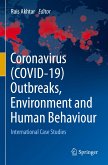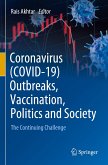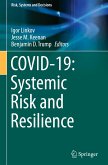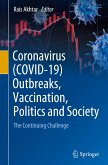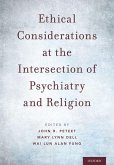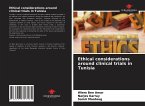This book addresses the many ethical issues and extraordinary risks that nurses and others are facing during the COVID-19 pandemic, which creates physical, emotional, and economic burdens, affecting nurses' overall health and well-being. Nurses are essential front-line clinicians across all health care settings and in every nation. The COVID-19 pandemic caused by the novel SARs-CoV-2 virus has affected children, adults, and communities within and across all societies. Nurses, too, have contracted the virus and died from the disease. They have also seen their colleagues, family members, and friends hospitalized or in intensive care units struggling to survive. Nursing's professionalism and disciplinary resolve to care for patients and families amidst confusion, misinformation, and shifting guidelines has been called "heroic" by the public.
How much risk should nurses be expected to accept during a pandemic? How do nurses help patients and families find comfort and dignity at the end-of-life? How do we help nurses who are suffering from moral distress and mental health concerns from what they have seen, been asked to do, or are unable to provide? And, how does society move forward from a pandemic that has challenged our basic ethical principles of justice and what is "fair, good and right" in caring for those who need care, including the most vulnerable and nurses themselves? This book addresses these and other ethical concerns that nurses are facing in their day-to-day clinical practice; experiences shared with patients, families, and colleagues. Although this book was written while the pandemic was still raging across the United States and globally, the events needed to be told as they were unfolding.
This book helps us to learn from both the successes and failures that are affecting so many across the globe, including those on whom the public relies on to provide quality, compassionate, and expert care when they are sick: nurses.
Hinweis: Dieser Artikel kann nur an eine deutsche Lieferadresse ausgeliefert werden.
How much risk should nurses be expected to accept during a pandemic? How do nurses help patients and families find comfort and dignity at the end-of-life? How do we help nurses who are suffering from moral distress and mental health concerns from what they have seen, been asked to do, or are unable to provide? And, how does society move forward from a pandemic that has challenged our basic ethical principles of justice and what is "fair, good and right" in caring for those who need care, including the most vulnerable and nurses themselves? This book addresses these and other ethical concerns that nurses are facing in their day-to-day clinical practice; experiences shared with patients, families, and colleagues. Although this book was written while the pandemic was still raging across the United States and globally, the events needed to be told as they were unfolding.
This book helps us to learn from both the successes and failures that are affecting so many across the globe, including those on whom the public relies on to provide quality, compassionate, and expert care when they are sick: nurses.
Hinweis: Dieser Artikel kann nur an eine deutsche Lieferadresse ausgeliefert werden.


